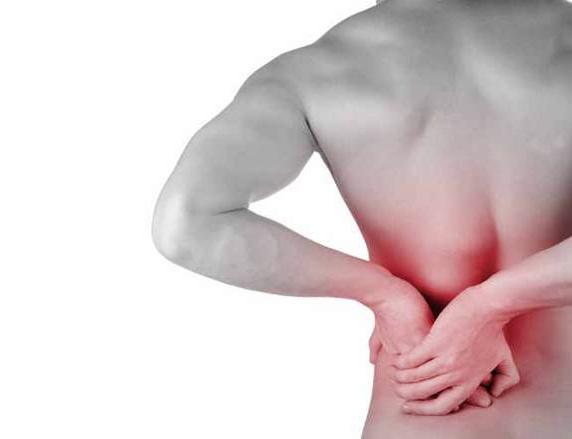If you are interested in training and in making the most out of your nutrition, at one point or another you are going to investigate the options of 'supplementation'. For many of the guys out there it's all about 'protein, protein, protein'. Getting enough of it, getting it in vast quantities and the right type of it to build that all important lean muscle mass. But are these tubs of powdery pump worth the investment? Do they achieve the lauded nutrition goals? And perhaps most importantly, are they doing us damage in the long term? It's a huge realm of investigation and can sometimes leave you feeling inundated with conflicting information and discussions.
Protein powders are aimed mainly at the lean muscle mass, athletically minded individual. In other words - GUYS. We train in the gym, we run, we play sport and we push ourselves, not just for health but 'TO LOOK GOOD IN BATHERS'. its true. Lean muscle mass is the holy grail of the male fitness regime and if there is a way to cheat it then everyone is going to do it.
Protein Powder supplements aim at to give us that all important 1.5-1,7gms of protein per kg of bodyweight in our daily intake to grow lean muscle. This is possible by just eating a good lean diet that is rich in protein and carbohydrate. Where protein powders are concerned is primarily as a 'meal replacement', where you don't have to cart another meal of chicken breast and broccoli to the office.
Types of Protein Powders
It is worth noting that when discussing protein powder sources, you want to identify which source has a high Biological Value (how fast it is absorbed by the body), however this can be superceded by the 'process' involved in creating protein powders. Processing creates 'denaturing' of the protein molecule which can have effects on how the protein is absorbed and ultimately how it is used by the body.
Whey
Whey has the highest BV of the protein sources. It is quickly absorbed by the body and has all the essential amino acids required for building muscle after exercise.
Whey Concentrate - is the purer form of the whey product, having only undergone one filtration process. It contains high doses of lactose and also has implications on 'insulin response'. It contains most of the elements and health benefits of whey including reduced cortisol and blood pressure as well as increasing antioxidants in the body.
Whey Isolate - is a processed protein and can strip elements from the protein. (lactoferrins/beta-lactoglobulins and immuno-globulins). It is a processed whey that is rapidly absorbed into the system, but does create issues if the amino acids are not used rapidly for muscle building. The amino acids will be transfered to energy production and act as a carbohydrate rather than a protein. this is the platform for recommending it as a 'post workout' protein.
it's worth noting here that some 'critics' of supplements say the pre/post workout combination of protein powders is bollocks! This is marketing jibe to make you feel that you need to buy these powders for recovery or results. To quote one article
"the best post workout drink you can have is chocolate milk"
The body needs amino acids after workouts but it also needs CARBOHYDRATE to replace lost energy (Adenosine Tri-Phosphate) stores used in exercise. Without these, the body doen'st have the fuel to process proteins and break them down to individual amino acids.
Egg Proteins
Are the most bio available protein source. It is absorbed rapidly (not as fast as Whey) but is released more slowly throughout the day which makes it a good source for 'non workout' supplementation. If you are just getting your caloric uptake for the day, then this is the best form of protein for you. It is also 'not as processed' as whey which we all know is better for the gut! It does however have a pretty 'funky' taste.
Soy Protein
Soy is an incomplete protein source. it needs to be combined with a complete protein to be absorbed into the body.
It does contain high levels of BCAA's (Branched Chain Amino Acids) which are the 9 amino acids used specifically for building muscle. BCAA's are not processed in the liver, but in the muscles themselves. However you must combine soy proteins with a complete protein to enable uptake of BCAA's in the system. It is worth noting that BCAA's are more to prevent muscle damage than muscle building. Ideally they are aimed at reducing fatigue and increasing recovery from 'intense exercise'. So if you are a CrossFit person, BCAA's may be the better source of protein for you.
Casein Powders
Casein is the other milk protein. It is denser than whey and thus is not absorbed as easily or as quickly. It does have a slow release of amino acids which makes it more ideal for daily use rather than post workout as well as being higher in calcium. Casein is supposedly better at maintaining muscle mass as well, not just creating it. Casein also has a greater satiety, providing you with a richer and more filling source of protein intake. Promoters of casein also believe it is a great protein to have before bed due to its slow release qualities that leaves you with a steady supply of protein to help build muscle mass as well as preventing breaking down of the protein structures. Casein also has anti catabolic qualities which has implications on actual 'strength' performance. Increased strength responsiveness to training was up to two times higher in some test groups using casein over whey*.
Some researchers promote a combination of both casein and whey supplements to make the most of both qualities. Whey in the am or after workout, but casein at night or during the day. Combination supplements are supposedly better for those who have not previously undertaken resistance training exercise.
Creatine
This is a naturally occuring substance in the body and creatine helps to create Adenosine Tri-phosphate (ATP), the molecule that basically creates energy for the body to perform its myriad of functions including muscular contraction. Creatine helps to provide explosive power in movements as well as have limited effect in helping build lean muscle mass. It's main purpose is to create more energy (ATP) to be able to perform better in explosive movements (ie weight lifting or sports that require bursts of power). If you can train harder, your muscles will respond.
Initially one will gain weight with creatine as it pulls water into the muscles, helping with protein synthesis. However without training, this 'extra weight' is merely "water weight" and it won't be converted to lean muscle mass unless you do the work.
There is evidence to suggest that every body works differently with creatine and some bodies are 'non responsive'. Creatine is found naturally in meat products and for some, adding creatine in supplemental form will not result in extra performance.
There is also evidence to suggest that whilst many researchers believe creatine to be 'safe' it can have effects on kidneys and liver function. Kidneys naturally produce 'creatinine' a by product of creatine production and an excess of this can be dangerous to the organ. People with Kidney and heart issues, as well as insulin/blood issues are recommended NOT to take creatine. This also stands true for those under 18yo. Strains, torn muscles, cramps and dehydration are some side effects that have been linked to creatine, though the evidence is inconclusive.
Many protein powders on the market already have creatine in their product, so be aware of amounts that are present in supplementation. The recommended dosage is 5 grams a day with cycling. Whilst all the research states that creatine supplementation is 'safe' and has no side effects with long term usage, all articles seem to promote a 'cycling' with creatine. The creatanine found in the kidneys obviously isn't ideal. So 'cycling' involves increasing dosage of up to 20g per day for 4-5 days and then levelling out to 5g per day. 3 months is the recommended period for this cycle. This is also to tie in with an ideal 'bulking' and 'leaning' phase of muscular development. Which shouldn't be of concern for an athlete taking creatine for 'performance based' results.
It is worth noting also that a lot of articles talk about the the 'contaminants' found in creatine powders and that these are as much a reason for cycling as the creatine itself? Warning bells for me.
So What's the Best Option?
Protein supplements are exactly that. Supplements. Ideally they are meant to give you a replacement value for your post exercise recovery and nutritional caloric intake for the day. There is no evidence to suggest that protein supplements have any nutritional or enhanced protein synthesis over a regular well balanced diet.
Protein drinks operate on the 'ease of consumption' principle. They can you give you a good dose of protein directly after a workout that satisfies the need for the right elements and nutritional dosages necessary for optimal protein synthesis and muscle building repair. They can also flush your muscles with H2o and plenty of carbohydrates to give you that great 'pumped' feeling after a workout so you look and feel 'buffed up'.
Over ingesting protein is an issue for those wanting to gain weight as any excess will always be stored as fat and will overtax the body. Its a case of figuring out how much protein you need. Recommended Daily Allowances (RDA) is a difficult scale to trust. These are based loosely on infantry men in the 1960's and are difficult to determine whether they apply to any one individual. I know for me, I burn a lot of calories when I am doing 4 x volleyball training sessions a week alongside my gym routine and weekly game of tennis, so my output is not necessarily 'average'. However research does indicate that 100-120g of protein for a 80kg individual is an 'acceptable' amount of protein to ingest. Roughly, thats a steak, chicken breast and possibly another protein rich source such as tuna or a protein shake. Some steaks are 250g of meat, thats approx 65g of protein in one serve. A 300g serve of chicken has 92g of protein! If you are indeed going for lean muscle mass, you can 'safely' gain 1-2kg per month. Any more weight gain than this may not be just muscle.
With certain products you do need to be aware of the 'cycling phase' like with Creatine, but also one should beware of the load that these products can have on your body organs like your liver, kidneys and Intestinal tract. Its not necessarily the proteins themselves but the added elements such as artificial sugars, flavours and glutamines that can have detrimental effects on your system over prolonged use. A prolonged use of synthetic supplements is not ideal for the lining of your gut, your cellular walls and your the load that the organs undergo to break down and to break down, process and absorb some of the more aggressive synthetic products. CHECK THE SUGARS.
It's about being aware of your body and how best you can 'feed it' whilst you are working it and asking a lot from it. Nutrition hasn't changed that much since before the advent of elite sports. Our bodies still need basic elements to produce results and do the job we need it to. Sure supplementation can help but be careful to keep it in balance and understand how much you should and shouldn't rely on artificial or synthetic supply.
http://www.webmd.com/vitamins-and-supplements/lifestyle-guide-11/protein-powder?page=1
http://www.builtlean.com/2013/05/14/whey-concentrate-vs-isolate-whats-the-difference/
http://www.crossfitinvictus.com/coaches/should-you-be-taking-branched-chain-amino-acids/
Dangin M, Boirie Y, Garcia-Rodenas C, Gachon P, Fauquant J, Callier P, Ballevre O, Beaufrere B. The digestion rate of protein is an independent regulating factor of postprandial protein retention. Am J Physiol Endocrinol Metab. 2001 Feb, 280(2):E340-8.
Boirie Y, Dangin M, Gachon P, Vasson MP, Maubois JL, Beaufrere B. Slow and fast dietary proteins differently modulate postprandial protein accretion. Proc Natl Acad Sci USA. 1997, 94(26):14930-5.
Willoughby DS, Stout JR, Wilborn CD. Effects of resistance training and protein plus amino acid supplementation on muscle anabolism, mass, and strength. Amino Acids. 2006 Sep 20. 1
*http://www.ncbi.nlm.nih.gov/pubmed/10838463
http://www.bodybuilding.com/fun/likness2.htm
http://www.seannal.com/articles/supplementation/what-happens-stop-taking-creatine.php
http://www.menshealth.com/nutrition/creatine-side-effects-what-it-what-it-does/page/3
http://www.abc.net.au/local/stories/2008/05/27/2256991.htm



